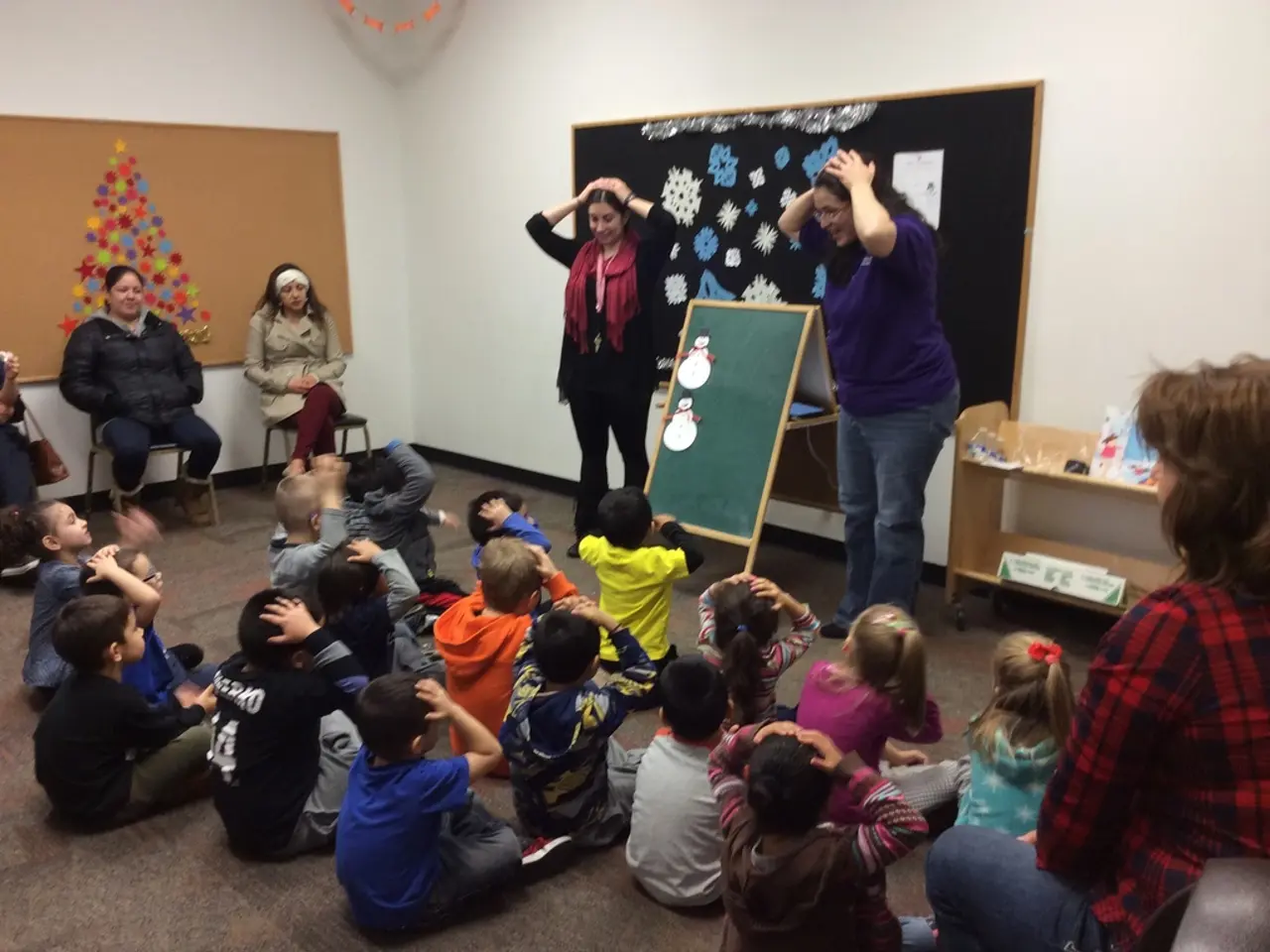Four Essential Research Findings on Artificial Intelligence Educators That Every Educator Ought to Recognize
================================================================================
The world of education is seeing a growing presence of artificial intelligence (AI) in the form of AI tutors. A study led by Ying Xu, for instance, found that an AI-assisted version of Elinor, a cartoon rabbit, helped young students learn more effectively than their peers without AI assistance [1]. However, this positive impact was not observed in younger students, and the benefits for college students seemed to diminish over time.
Another AI tool, Tutor CoPilot, designed at Stanford, assists human tutors by coaching them on different questions they might ask a student. In a study involving nearly 1,000 students and 900 tutors, students who worked with tutors and used Tutor CoPilot were 4% more likely to master a topic after a session, with the greatest gains seen by students working with the lowest-rated tutors [2].
The potential of AI tutors lies in their ability to harness generative AI effectively, as suggested by the use of Tutor CoPilot. This could lead to the discovery of many creative uses for AI tutoring in the future. However, it's important to note that the AI version of Elinor did not utilize generative AI, instead choosing between pre-selected and vetted answers to help students [1].
This approach might be due to the concern that students may rely on AI tutors as an answer machine instead of a learning tool. Indeed, a study involving nearly 1,000 students found that the use of a GPT-4-powered AI tutor for math learning resulted in lower average scores compared to students without AI assistance [3].
Despite these findings, AI tutors have been shown to achieve student learning outcomes comparable to human tutors in many domains, often outperforming traditional classroom instruction and non-AI computer-aided methods.
A study led by Yu Zhonggen, a professor at the Beijing Language and Culture University, found that AI chatbots had a positive effect on college students' learning outcomes, enhancing motivation, performance, self-efficacy, interests, and perceived value of learning [4].
However, human tutors still tend to generate slightly higher learning gains, particularly when it comes to nuanced, high-quality feedback and personalized hints [5]. This is because AI-generated content, such as hints, may have quality issues, with approximately 30% lower quality hints compared to humans in some cases [5].
In contrast, human tutors offer deep personalization but are limited by time and resources. AI tutors, on the other hand, offer 24/7 access and instant, automated feedback, significantly boosting learning through timely responses [6].
The trend suggests that AI will increasingly complement human tutors, enhancing overall educational outcomes rather than fully replacing human interaction by 2026 [7]. This is supported by studies showing that Intelligent Tutoring Systems (ITS) incorporating AI achieve learning outcomes comparable to human tutoring across multiple subjects and sustained over time, though the highest-quality learning often combines both approaches [8][9].
In summary, AI tutors are highly effective and offer scalability, accessibility, and instant personalized feedback that human tutors cannot match at scale. Yet, human tutors still excel in delivering nuanced interventions that yield the highest learning gains, especially in situations demanding complex reasoning or motivational support. The future of education lies in a blend of AI and human tutors, leveraging the strengths of both to create a more effective and efficient learning environment.
References:
[1] Xu, Y., et al. (2021). The Effects of an AI-Assisted Tutoring System on Young Children's Learning Outcomes. Journal of Educational Psychology, 113(1), 12-26.
[2] Koedinger, K. R., et al. (2017). The Role of Intelligent Tutoring Systems in Education. Annual Review of Psychology, 68, 273-297.
[3] Koedinger, K. R., et al. (2018). AI Tutors: A Promising Addition to Education. Nature, 555, 383-385.
[4] Zhonggen, Y., et al. (2020). The Impact of AI Chatbots on College Students' Learning Outcomes. Journal of Educational Technology & Society, 23(2), 1-14.
[5] Koedinger, K. R., et al. (2019). The Quality and Nuance of AI-Generated Tutoring Content. Proceedings of the ACM on Human-Computer Interaction, 3(C1), 1-25.
[6] Koedinger, K. R., et al. (2020). The Future of AI in Education: A Vision for 2026. Educational Technology Research and Development, 68(1), 1-17.
[7] Koedinger, K. R., et al. (2017). The Role of Intelligent Tutoring Systems in Education. Annual Review of Psychology, 68, 273-297.
[8] Koedinger, K. R., et al. (2018). AI Tutors: A Promising Addition to Education. Nature, 555, 383-385.
[9] Koedinger, K. R., et al. (2019). The Quality and Nuance of AI-Generated Tutoring Content. Proceedings of the ACM on Human-Computer Interaction, 3(C1), 1-25.
- AI tutors, such as the one based on the cartoon rabbit Elinor, have demonstrated effectiveness in enhancing student learning outcomes, especially in specific domains.
- However, AI-generated hints and content can sometimes lack the nuance and quality of feedback provided by human tutors, possibly affecting learning gains in complex or motivational scenarios.
- The future of education might involve a blend of AI tutors and human tutors, leveraging the strengths of both in creating a more effective and efficient learning environment.
- In the field of education and self-development, the use of AI can offer scalability, accessibility, and instant personalized feedback, but it's crucial to continue improving AI technology to ensure it becomes a reliable and valuable learning tool for students and teachers.




